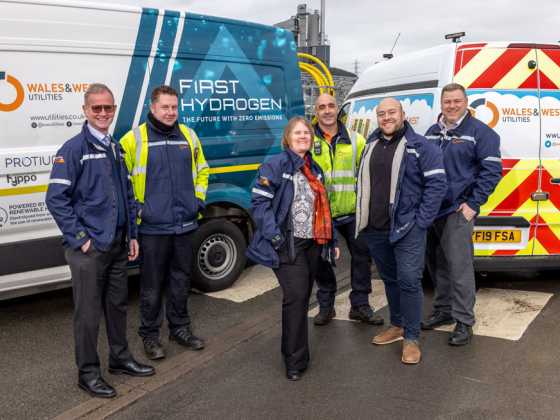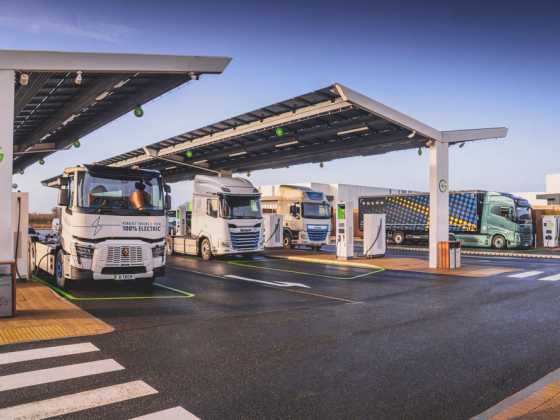A vision for future fuel
While the DECC’s recently published Carbon Plan shows that politicians are finally starting to take hydrogen transport seriously, more work needs to be done to support this future fuel
 The Department of Energy and Climate Change (DECC)’s recently published Carbon Plan sets out a bold vision for a future without fossil fuel powered cars. While DECC’s plans for hydrogen fuel cell transport are welcome, they are however short on detail and suggest a lack of coordination with the Department for Transport (DfT). This is particularly disappointing given that Liberal Democrats are responsible for low carbon transport policy in both departments.
The Department of Energy and Climate Change (DECC)’s recently published Carbon Plan sets out a bold vision for a future without fossil fuel powered cars. While DECC’s plans for hydrogen fuel cell transport are welcome, they are however short on detail and suggest a lack of coordination with the Department for Transport (DfT). This is particularly disappointing given that Liberal Democrats are responsible for low carbon transport policy in both departments.
A proposal for reducing the UK’s carbon footprint, the Carbon Plan describes how the government believes it will meet the ambitions set out in its carbon budgets (i.e. 80 per cent carbon emission cuts by 2050) and updates the draft Carbon Plan published back in March.
THE FUTURE OF FUEL
The plan predicts that by 2050 all cars will ‘run on ultra-low emission technologies such as electric batteries, hydrogen fuel cells and plug-in hybrid technology’; a prediction that is enormously welcome for the hydrogen industry. The recognition that hydrogen fuel cell vehicles will be part of the future transport mix represents a step-change in the government’s attitude to hydrogen – you only have to look back at the draft Carbon Plan to see how far the government moved. The words hydrogen and fuel cell did not appear even once in the context of transport in the first draft of the plan, which talked in glowing terms about battery vehicles.
In this final draft, hydrogen fuel cell vehicles are championed alongside battery vehicles as the future for road transport in the UK. The entire car industry has long been moving towards the electrification of road transport, both hydrogen fuel cell and battery powered cars, and the government’s recognition of this has not come too soon.
MORE DETAIL NEEDED
However, the lack of detail is still a concern. The Carbon Plan predicts the mass roll-out of hydrogen fuel cell cars during the 2020s, but the only word on how we will get to this point is a March 2012 review of the strategy ‘to support transition from early ultra-low emission vehicle market to mass market’, by the Department for Transport (DfT).
It is true that there is work to be done in bringing low emission vehicles to market and we know that the government is working towards a strategy, but there are things it can start doing now. For example, we believe that hydrogen should be included in the Renewable Transport Fuel Obligation. The Department for Transport currently has the policy under review, saying it is waiting for the European Commission to produce a methodology for calculating renewable hydrogen. At the very least the government should have a timetable in place for hydrogen’s inclusion once the methodology is published (it is due before the end of 2011). This change in policy would help ensure the cost of hydrogen at the pump is not higher than other fuels and ensure there is a genuine business case for hydrogen road transport.
GOOD NEWS FOR HYDROGEN
At the moment, the Carbon Plan sets out a very positive vision for what a low carbon transport infrastructure might look like in 40 years time. It is a step forward for hydrogen transport, not least because the government had neglected it in its earlier plan. But it will be obvious to all that this document is good on vision, but short on detail. Ultimately this detail will have to come from the DfT and it would be a good thing for hydrogen transport if Chris Huhne makes clear to his Liberal Democrat counterpart in DfT, Norman Baker, what he is expected to achieve in the coming years.
On the whole, however, the Carbon Plan is good news for hydrogen. It moves government transport policy on considerably from where it was only nine months ago, and shows that the politicians are finally starting to take hydrogen transport seriously.
Written by Diana Raine, executive member of the UK Hydrogen and Fuel Cell Association
ABOUT THE AUTHOR
Diana Raine is the European Business Manager for Hydrogen Energy Systems at Air Products plc. She is currently the project coordinator for HyTEC which unites industry and government groups in developing hydrogen transport infrastructure in London and Copenhagen. Diana represents Air Products on a number of industry groups, including the UK Hydrogen and Fuel Cell Association, the Centre of Excellence for low carbon and fuel cell technologies as a board member, the Scottish Hydrogen and Fuel Cells Association and the London Hydrogen Partnership.






